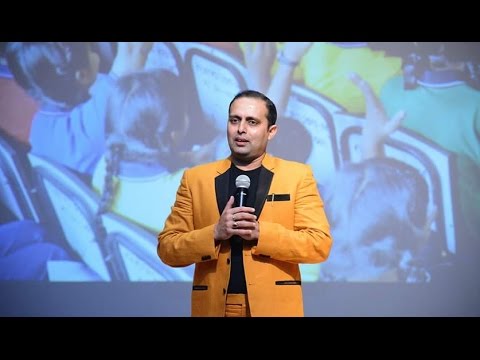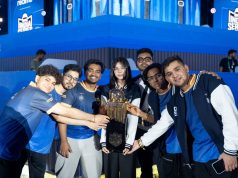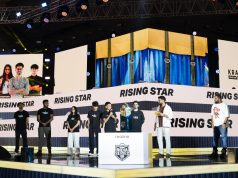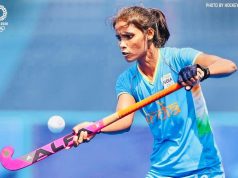Owing to the Coronavirus crisis, the selected athletes for the Olympics are facing a real challenge to remain both physically and mentally fit. Sportsavour got in touch with Mreenal Chakraborty, the Master Practitioner of Neuro-Linguistic Programming and Mental Toughness Trainer, to get his take on the whole situation.
The Olympic Games – the pinnacle of sporting events. The event, in which, all athletes have a dream of participating in. However, this time around, COVID-19 has pushed back the Olympics by a year and with the pandemic still not showing signs of letting up, there have been minimum tournaments or sporting events where the selected athletes could train to get themselves ready for the Olympics.
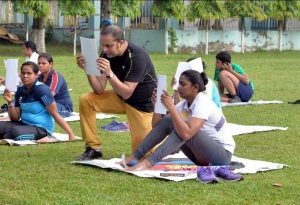
In a situation like this, apart from physical fitness, it can also be a real challenge to try and remain mentally fit to be able to perform optimally at such a huge sporting extravaganza. Having worked with the Hockey, Archery and Shooting teams of India, and presently working with a number of the Indian athletes who have qualified for the Olympics, Mreenal Chakraborty is an expert to provide some insight on this never-before-seen, unique, situation.
Change in preparation: ‘Start Before You Start’
Mreenal Chakraborty: Owing to the Coronavirus situation there has been a stark contrast in the way athletes train compared to pre-COVID situations. This is also true for the psychological training procedure. All the athletes who have already qualified for the Olympics and also the ones who are still trying to qualify, have all felt the change. They are facing a certain “psychological trauma” regarding how to train for the Olympics, mainly since there is very limited scope for training and practice and there have been very few competitions taking place for over a year.
In order to re-instill their confidence, the first thing I tell them is Start Before You Start. It means investing more time in planning. Prior to COVID-19 taking hold of our lives, athletes training for the Olympics would generally go through a rigorous schedule of 80% tournaments and 20% practice or training. As the Olympic dates drew nearer, they would slowly shift toward a lot more match practice and training. However, in the present situation athletes simply do not have that option and they must come up with a new way to do things. They need to create their own tournaments during the practice hours. This means that the athletes must visualise themselves participating in the tournaments. It’s all about the mindset of a person.
Importance of mental toughness: ‘Repair to Prepare’
Mreenal Chakraborty: At the time when the lockdown for COVID-19 began I was bombarded by questions from multiple athletes, who had already qualified for the Tokyo Olympics scheduled to be held in its original date, regarding how they could manage their emotions. These uncertain and tumultuous times had taken a huge toll on the mental health of the athletes, rendering them unable to control their emotions and making them unnecessarily reactive.
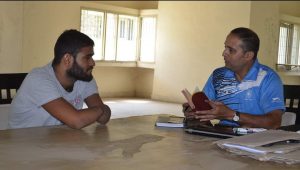
To them, always my line is, Repair To Prepare. This is the repairing time. Since everyone is mostly stuck at home and there are no competitions and very limited training, this is the perfect opportunity, where everyone has a lot of time at hand to repair themselves.
In the book titled “Art of War”, it says that only when you not only know your adversary but also know yourself fully, do you have a good chance to win. Each person has his/her strengths and weaknesses. So, at a time when it is risky to spend too much time out in public places and there are very limited chances of communicating with others, athletes should take the time to try and communicate with their own selves. This is referred to as “Intrapersonal Communication”.
In order for this to work, individuals must first work extensively on themselves. They have to first understand their quality, the current level they are at and the level that they want to reach i.e the ‘desired level’. Once that is done, you can work towards that ‘desired level’, by researching more, collecting more information and combining it with a good attitude. Once these ingredients mix homogeneously in a person, he/she is bound to achieve success.
Essential to be in the present: ‘Marginal Effect’
Mreenal Chakraborty: Marginal Effect loosely translates to working on every single aspect of your game minutely. One message I ensure that is drilled into all athletes I work with is that they have to give an extra 1% each time, each day, in every single department. i.e. regardless of whether the athletes are going through their warm-up routines, whether they are working out, whether they are practicing, whether they’re doing exercises, basically in every area, the athlete must try to at least marginally improve on his/her performance, compared to the previous attempt.
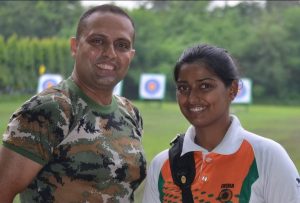
There are very few coaches who understand the true meaning and value of mental toughness for an athlete, especially one that has qualified for the Olympic Games. Just like an athlete needs proper training, physical fitness, proper nutrition, etc., he/she also needs to be mentally tough. The Olympics return once every four years and it is not necessarily sure whether an athlete will qualify for the Games the next time. So when an athlete has gotten an opportunity to participate in one edition of the Games, he/she needs to make it count.
Very rarely do people remain in the present. Just like the pendulum of a clock, an individual’s mind keeps shifting between the past and the future. However, it is extremely important for athletes to remain focused on the present, to be ready to adapt to exactly what is going on around them. Neither can they rely on their laurels or previous achievements, nor is there a second time. They have to prove themselves each time and it’s their performance on “the day” that will either make them a success or a failure. So, one of the most important factors for them is to remain in the moment.
Prepare your mind: ‘Hypnosis Trance’
Mreenal Chakraborty: Even though athletes are being forced to stay away from tournaments, competitions, basically anything that even remotely resembles the atmosphere in which they will have to perform at the Olympics, there is a technique that can get their minds ready. It is a secret, but I want to share this secret. It is called Hypnosis Trance or the “Creative Visualisation Exercise”. This technique requires the athletes to visualise the entire experience beforehand in their own minds. For example, before going to the ground it’s important to visualise going to the ground and performing with all the factors that they would face there, like crowd noise, other competitors, etc.
It is also termed as “Visualisation Activation”, where you activate your neurons as if you are actually in the field. Leading players around the globe, like 23-time Olympic champion Michael Phelps, and other athletes have been using this technique for quite some time now. Even hockey players often use this technique by playing hockey matches on the computer and adding the crowd noise to simulate an actual experience of the ground.
Keeping in line with this technique, athletes now need to prepare themselves for a significant challenge at the Tokyo Olympics – the complete absence of a crowd. In the same way that the presence of a crowd can be unsettling, even the absence of one can be hard on an athlete’s nerves. They are always used to a whole lot of crowd noise, especially at the Olympic Games where spectators from all corners of the planet make their way to the stadiums. This significant decrease in the volume can be quite unnerving, which is why I ensured that all the athletes I worked with while helping them train for the Olympics, surely went through the process of visualising themselves performing at the Olympics, in the absence of a crowd. Going through this visualisation as many times as possible will finally lead to the actualisation of the victory for the athlete(s).
Hope from the Tokyo Olympics
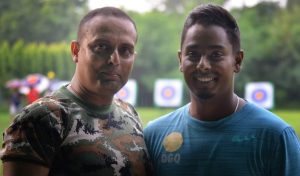
Mreenal Chakraborty: I believe that I have a lot to learn and give back to society. I am quite hopeful about India’s outing at the Tokyo Olympics. I think there is a good chance that India will return home with a better, and probably larger, collection of medals than their previous outings. I have worked with several of India’s top athletes who have qualified for the Olympics, and I’m confident that most of them are extremely mentally tough and will be able to hold their own during the topsy turvy Olympic Games.

